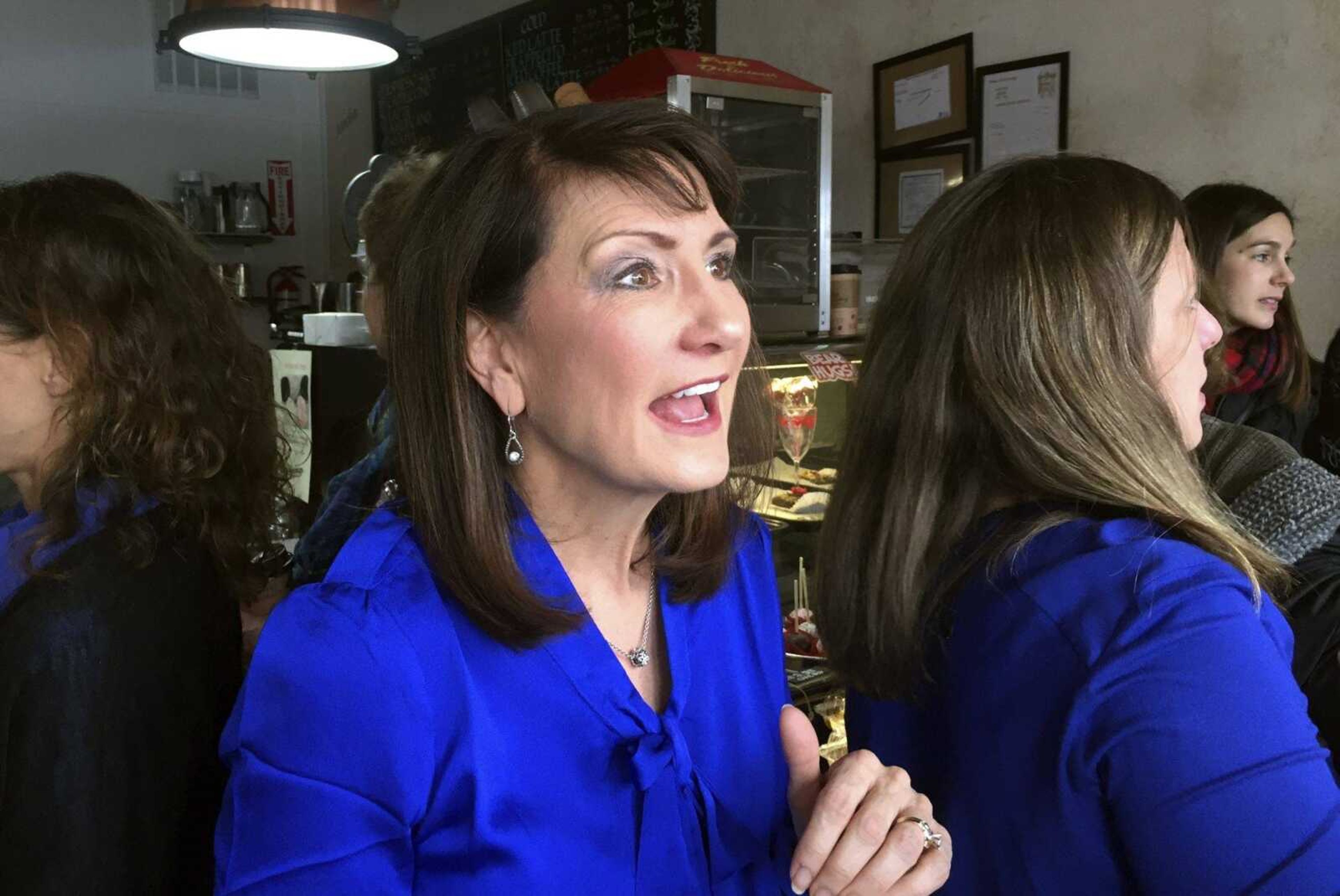Dems head into primaries with big field of candidates
ATLANTA -- Two years ago, just one Texas Democrat volunteered to run against Republican Rep. John Culberson in a metro Houston congressional district. This year, not even the failed Democrat's double-digit loss could scare seven Democrats away from jumping in the race...
ATLANTA -- Two years ago, just one Texas Democrat volunteered to run against Republican Rep. John Culberson in a metro Houston congressional district. This year, not even the failed Democrat's double-digit loss could scare seven Democrats away from jumping in the race.
As primary season opens today with the Texas vote, Democrats across the country are enjoying a bumper crop of candidates. It's the latest sign of enthusiasm -- like massive women's marches and victories in state races around the country -- heading into midterm elections looking increasingly hopeful for the opposition party.
But the abundance of volunteers also comes with a reality check: The crowded primaries are giving the party's ideological divide a full public airing and could give party leaders less control over who carries the mantle in November.
Conversations with more than a dozen Democratic candidates, party officials and strategists found confidence a glut of crowded primaries won't damage the party's overall prospects for a big November. Yet Democrats acknowledged the lively nomination fights could result in victories for candidates with little experience, scant scrutiny or political views out of step with general electorate.
That's largely because it's the party's left flank has provided much of the enthusiasm since President Donald Trump's election capped nearly a decade of Democrats' losing more than 1,000 federal and state offices.
"Just any blue won't do," said Nina Tuner, a former Ohio legislator who leads Our Revolution, the spinoff of Sen. Bernie Sanders' 2016 presidential campaign. Like Sanders, the group calls for a $15 minimum wage, free public university tuition and a national health insurance plan.
"People are not just voting for people because they are Democrats," Turner added. "They want to vote for people who are fighting for their values."
In Washington, though, there's a hint of worry about what kinds of candidates can win in Republican-leaning areas Democrats may need to regain majorities on Capitol Hill and dent GOP advantages in some statehouses. Even in Democratic strongholds, where partisan control isn't at play, the battles will help determine the direction of the party.
The tensions will get their next test in Texas with primaries Tuesday.
The party has candidates in every Texas congressional district ----36 of them -- for the first time in 24 years. There are 25 contested Democratic primaries, including in each of the five districts that appear on national Democrats' target list of 98 GOP-held seats. Democrats need to flip 24 seats to win control of the House.
The Democratic Congressional Campaign Committee raised eyebrows in Culberson's district when it publicly released a memo calling one of its seven candidates, Laura Moser, a "Washington insider" who'd once declared she'd "rather have my teeth pulled out without anesthesia" than live in Paris, Texas.
Meredith Kelly, a party spokeswoman, explained the move saying the committee wants to "ensure that there's a competitive Democrat on the ballot" in November, the implication being that Culberson and Republicans would use the same material to make Moser unelectable.
Local members of Our Revolution, Sanders' political organization, endorsed Moser soon after the party memo surfaced.
For her part, Moser turned the flap into a television ad blasting Washington for meddling.
Meanwhile, in California, the state Democratic Committee ensured an internal fight when it snubbed Sen. Dianne Feinstein after 26 years in office and instead endorsed her more liberal Democratic rival.
Feinstein still leads in the polls and may not be seriously threatened in California's so-called jungle primary system, which places all candidates, regardless of party, on the same first ballot, with the top two vote-getters advancing to a second round of voting. But the environment within the party still forces Feinstein to withstand a challenge from the left.
The system means a free-for-all among Democrats running for California congressional seats. The party is seriously targeting about a half-dozen Republican-held seats, with multiple Democrats running for each. Five signed up for retiring Republican Rep. Darrell Issa's seat in San Diego County. Seven are taking on Rep. Mimi Walters in Orange County, while eight want to unseat Republican Dana Rohrbacher in a nearby district.
Tom Perriello, who ran for Virginia governor in 2017 with backing from party liberals, says intense primaries, crowded or otherwise, don't have to spell doom the winner. "I think people try to impose the 2016 Bernie-Hillary divide" on every matchup, he said, referring to the presidential nominating fight between Hillary Clinton and Sanders.
It's rarely that simple. Perriello lost the Democratic nomination to Ralph Northam, viewed as the more moderate choice.
"We agreed on 90 percent of things," Perriello says, remembering "a respectful primary based on ideas." Afterward, Perriello campaigned for Northam and Virginia legislative hopefuls. Northam won by 9 percentage points, while a slate of liberal nominees changed the direction of the Virginia Assembly.
Periello says the Virginia results show there's room in the party, even in the same primary, for a range of philosophies and styles.
In the Texas 7th, one of Moser's opponents agrees.
"Even though it's a crowded Democratic primary field, I think the upside of that is a lot of people working to turn out the vote and telling people this is a district where people can win," says Lizzie Pannill Fletcher. "We all agree that our opponent is John Culberson."
Connect with the Southeast Missourian Newsroom:
For corrections to this story or other insights for the editor, click here. To submit a letter to the editor, click here. To learn about the Southeast Missourian’s AI Policy, click here.










